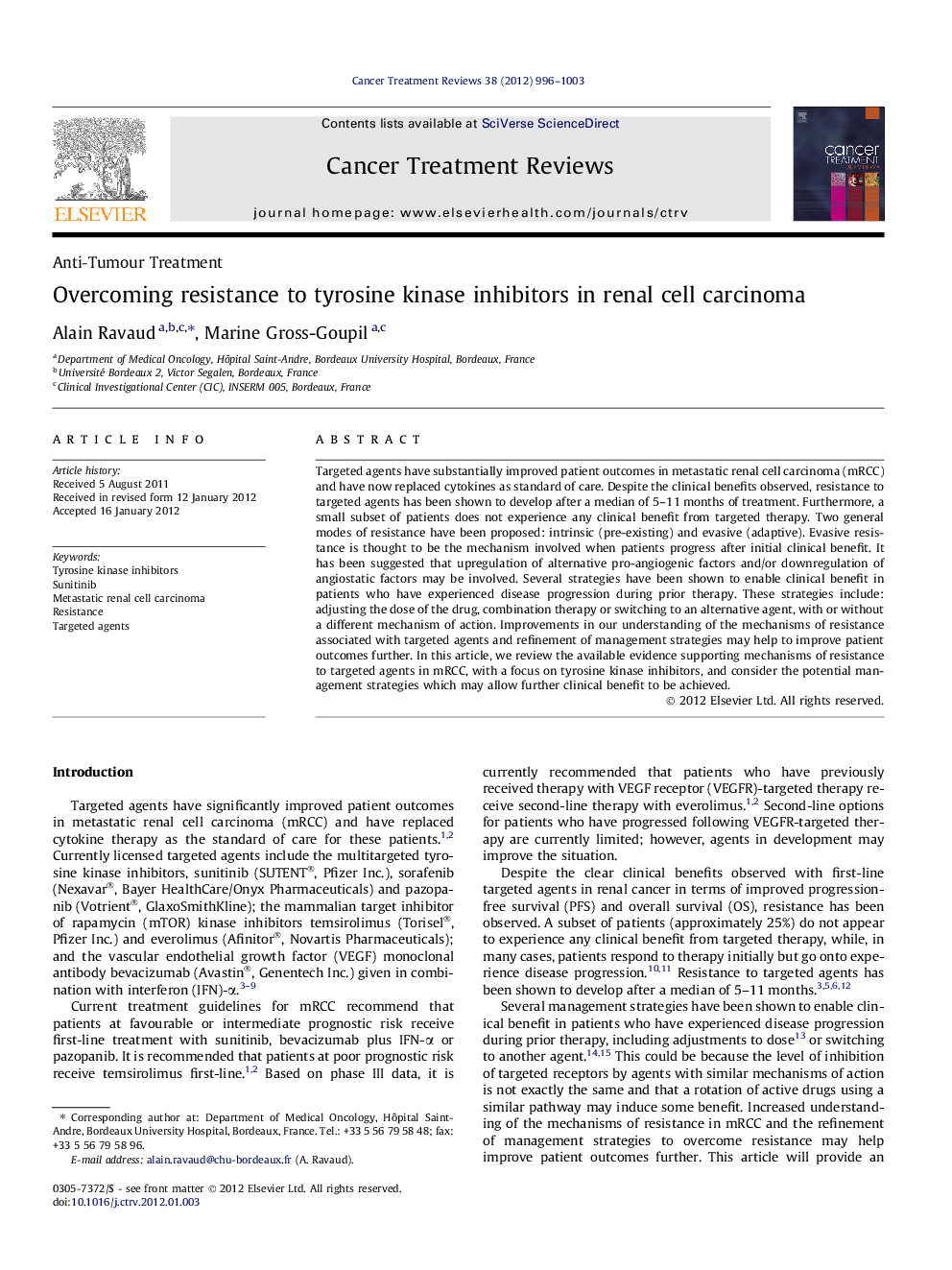| Article ID | Journal | Published Year | Pages | File Type |
|---|---|---|---|---|
| 3979898 | Cancer Treatment Reviews | 2012 | 8 Pages |
Targeted agents have substantially improved patient outcomes in metastatic renal cell carcinoma (mRCC) and have now replaced cytokines as standard of care. Despite the clinical benefits observed, resistance to targeted agents has been shown to develop after a median of 5–11 months of treatment. Furthermore, a small subset of patients does not experience any clinical benefit from targeted therapy. Two general modes of resistance have been proposed: intrinsic (pre-existing) and evasive (adaptive). Evasive resistance is thought to be the mechanism involved when patients progress after initial clinical benefit. It has been suggested that upregulation of alternative pro-angiogenic factors and/or downregulation of angiostatic factors may be involved. Several strategies have been shown to enable clinical benefit in patients who have experienced disease progression during prior therapy. These strategies include: adjusting the dose of the drug, combination therapy or switching to an alternative agent, with or without a different mechanism of action. Improvements in our understanding of the mechanisms of resistance associated with targeted agents and refinement of management strategies may help to improve patient outcomes further. In this article, we review the available evidence supporting mechanisms of resistance to targeted agents in mRCC, with a focus on tyrosine kinase inhibitors, and consider the potential management strategies which may allow further clinical benefit to be achieved.
